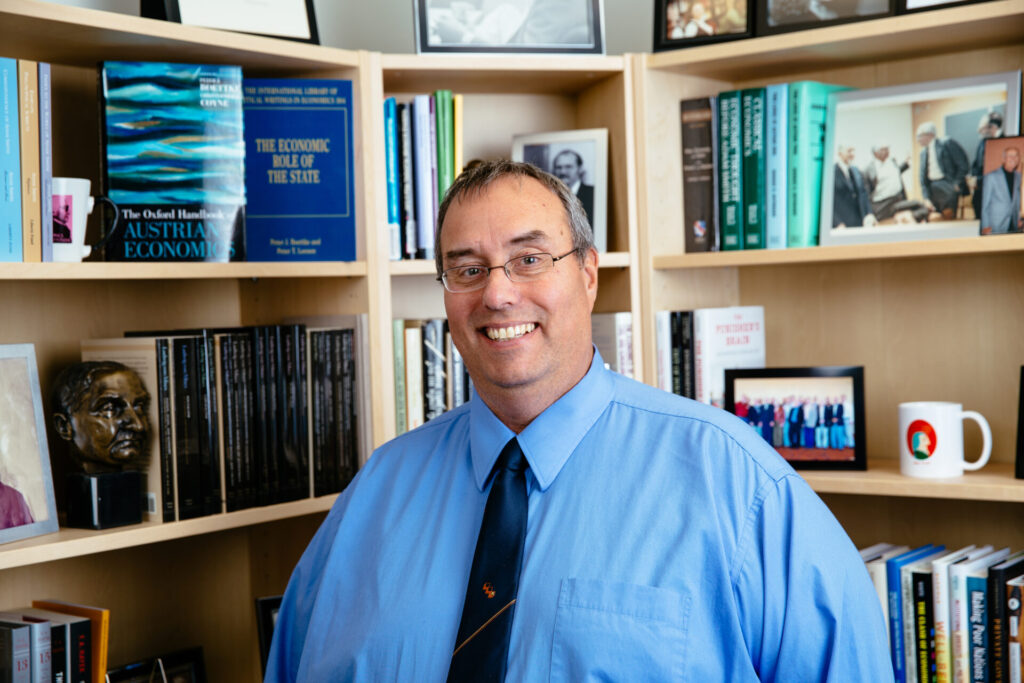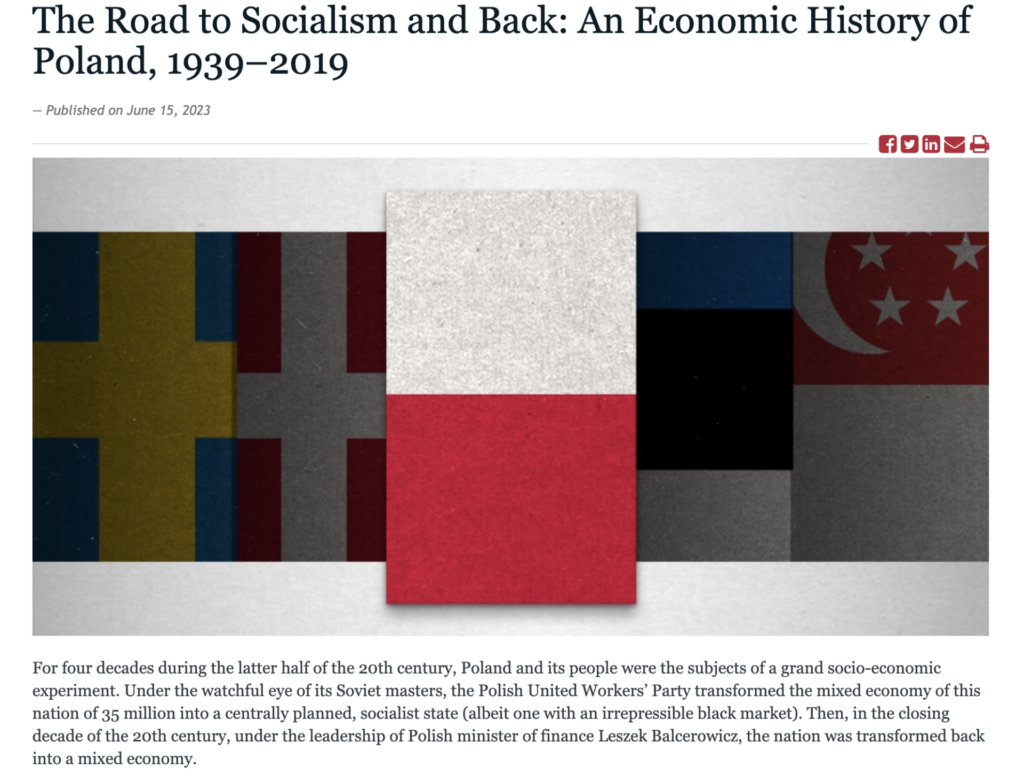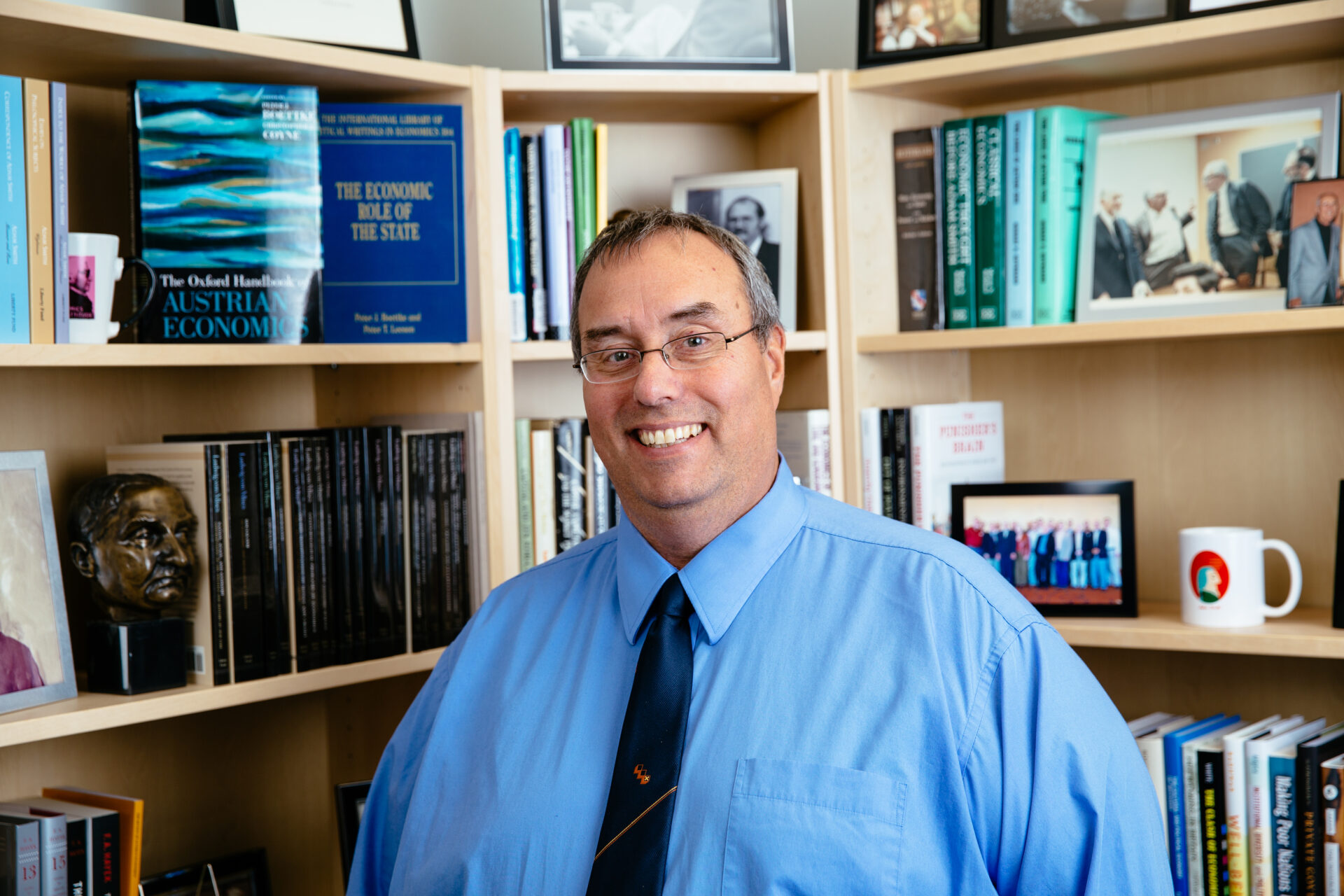The liberties that underpin our society seem to wane in the shadow of rising authoritarian trends and academic decline, making the concepts of freedom and open inquiry more vital than ever before. To push back against this rising tide of illiberalism, IHS is working with scholars who champion the spread of freedom-centric ideas not just within the sanctum of academia, but far beyond its ivied walls.
It is with a profound sense of urgency that thought leaders and educators confront these challenges by cultivating the grounds for dialogue and debate. Professors serve as vanguards in this mission, instilling in their students the principles that fortify free and open societies. They are the mentors who light the path forward and the scholars whose work resonates beyond the classroom.
Professor Peter Boettke of George Mason University, for instance, exemplifies how sustained mentorship can amplify the voices of young scholars, cultivating a future enriched with classical liberal understanding and economic acumen.
When Boettke was first starting out his academic career as an undergraduate and graduate student, he received some important advice from one of his mentors, then IHS Vice President of Academic Affairs, Walter Grinder. At its core, this advice was fairly matter-of-fact: pay it forward. The simple but vital idea that supporting and investing in the young, bright academic minds of the day would create a positive ripple effect for the future scholars of tomorrow.

Over thirty years later and Boettke, now a professor of economics and philosophy at George Mason University is a testament to the power of paying it forward, something he applies in his teaching style and advice given to his students now.
“You pay it forward to the students afterward,” Boettke says of the support he received from IHS over the last three decades. “Walter really stressed this idea of ‘students squared,’ which is the power of a professor that’s given the kind of [opportunities] as I’ve had. I’ve been able to teach Ph.D. students who then become professors of other students. And one of the things that’s fascinating for me is to have the students of my students; it’s just an amazing thing to see.”
So how exactly does paying it forward work? In Boettke’s case, it comes from decades-worth of IHS career development programs, connection and networking opportunities, and funding for advancing research. He is a scholar who has been involved with IHS throughout his entire academic career, from undergraduate and graduate school, to now as an established and distinguished professor with a prolific publishing record. This positions Boettke as a key connection for other rising stars within the academic community. And as Boettke is quick to note, it takes great professors and academic mentors to inspire a future of great scholars.
With this in mind, he has regularly served as a faculty speaker at various IHS seminars over the years, engaging with students on their level to explore ideas within the classical liberal tradition.
“I just enjoyed so much being part of those,” states Boettke. “In doing that, I ended up meeting students that [became] my doctoral students. I’ve had 40 students that I’ve been fortunate enough to chair their dissertations. A lot of them I first recruited to be able to come and study with me through IHS. So, it was amazing.”
Boettke deeply believes that education is a transformative experience and emphasizes how higher education changed the course of his career. “I was a kid that wasn’t interested in economics when I went to college,” he states. “I had a fantastic economics professor. He changed my life.”
This experience, coupled with the “pay it forward” advice he received from IHS long ago has helped shaped his approach with his students today, fostering their curiosity and igniting a passion in them for compassionate, freedom-based solutions to economic problems. A passion that is visible within Boettke himself.
“That’s the message, that economics is a tool for the curious,” says Boettke. “It helps us have effective compassion. And the way in which that gets communicated is we have to teach people the power of economic reasoning; the straightforward logic and evidence, the hard-nosed aspects of economics. But we also have to cultivate in our students a sense of awe and beauty about spontaneous order and how the wonderment of the world around us is spontaneously organized through the invisible hand of economic forces. And then also, the great hope that it provides because of the amazing entrepreneurial opportunities through the changing of technologies, through the changing of strategies to bring goods to market, through this changing of the rules under which we interact. The tremendous hope that economic progress provides.”

Another example of how Boettke is practicing this pay-it-forward model for students can be seen in his monograph (a detailed and specialized study) about the dangerous economic effects of socialism that he and his co-authors have specifically adapted for high school and undergraduate student use.
Partnering with the Fraser Institute, Boettke and his co-authors Konstantin Zhukov and Matthew Mitchell – both former students of his and IHS alums in their own right – intend for this monograph to serve as a stepping stone for a younger generation of scholars to explore and more easily understand the complex economic challenges surrounding the rise and fall of socialism in Poland from 1939 through 2019. A second monograph, taking a deep dive into Estonia’s fraught economic history with socialism, will be available in the coming year.
“Today’s youth views the historical experience of socialism the way we would view a Charlie Chaplin film,” he illustrates. “[To them] it’s in black and white, and it’s silent movies from way in the past, and they haven’t experienced it.” He further describes how students today aren’t aware that socialism in its earliest stages, as illustrated in these monographs, was initially a form of totalitarianism, and how today’s students are less familiar with what socialism truly entailed, often falsely equating qualifying terms such as “‘democratic socialism” as a means to sanitize it.
This urgency and passion for imparting an understanding of classical liberal ideas to his students are some of the many reasons Boettke has such an impressive “family tree;” former students of his that have gone on to become professors themselves with former students of their own.
“I consider myself the luckiest academic in the world,” smiles Boettke. “Cause no one gets to do that work with their own PhD students like that. But I do. I have a cohort of students that I had from my initial decade at George Mason who have been phenomenally successful and see them become deans and run [academic] centers, and have the publishing success that they’ve had.”
Given his body of work, breadth of publications, and decades of teaching, you could easily say, from a purely economic standpoint, the Institute for Humane Studies’ initial investment in Boettke has paid back to hundreds upon hundreds of students in dividends.
Find out how you can help IHS continue to support scholars like Peter Boettke and pay it forward for the future of academic freedom. For more information on our scholars, programs, and academic funding opportunities, visit TheIHS.org.
